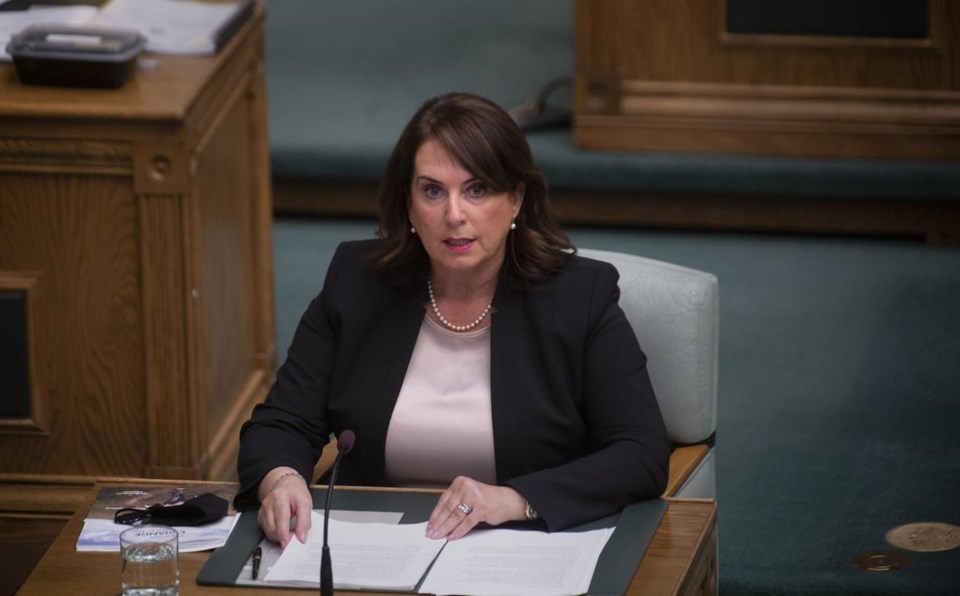ST. JOHN'S, N.L. — The Newfoundland and Labrador government is offering residents one-time payments of up to $500 in an effort to offset high inflation and soaring costs of living.
Residents who made less than $100,000 last year will get a cheque for $500, officials announced Wednesday. Those who made between $100,000 and $125,000 will get a payment ranging from $250 to $500, depending on their income.
"The fiscal situation temporarily has improved in the province," Premier Andrew Furey told reporters. "And we feel that given the stress and strain that families are feeling, it's important that we take some of that change and give it back to people."
Quebec introduced a similar measure in March, offering $500 to residents who made less than $100,000, and newly re-elected Premier François Legault says his government will issue Quebecers another payment — up to $600 — in December. Prince Edward Island gave its residents up to $150 in July.
Siobhan Coady, Newfoundland and Labrador's finance minister, told reporters her department felt that a one-time payment rather than a tax break would be the fastest way to put money in people's pockets.
About 392,000 of Newfoundland and Labrador's approximately 525,000 residents will qualify for a cheque, Coady said. The program will cost the province nearly $200 million, she added.
Higher-than-forecasted revenues will help pay for it, she said, adding that the province is expecting more royalties from the four oil installations in the province's offshore region. Her department compiled the current fiscal year's budget with a forecasted oil price of $86 per barrel. As of Wednesday afternoon, the price per barrel was nearly $88, after soaring to more than $120 in early June.
Residents aged 18 and older who had adjusted incomes of $125,000 or less in 2021 are eligible for a cheque. Those who have not yet filed their taxes for 2021 have until Dec. 31 to do so and still be eligible for the one-time payment, according to a government news release.
The release says the payments will begin later this year.
This report by The Canadian Press was first published Oct. 5, 2022.
The Canadian Press




